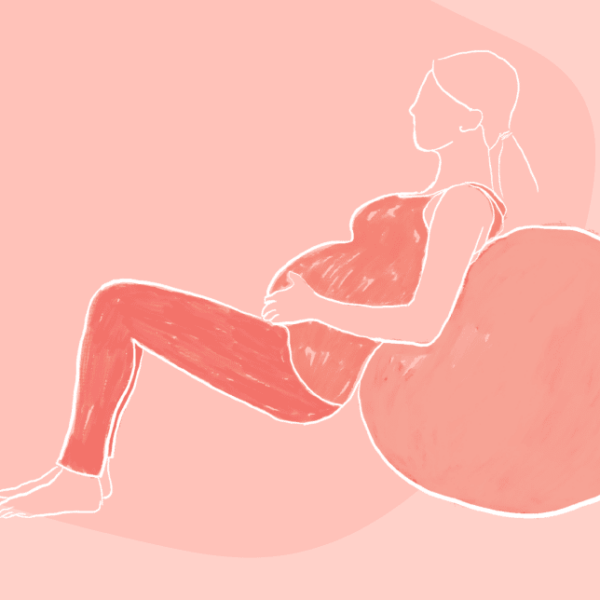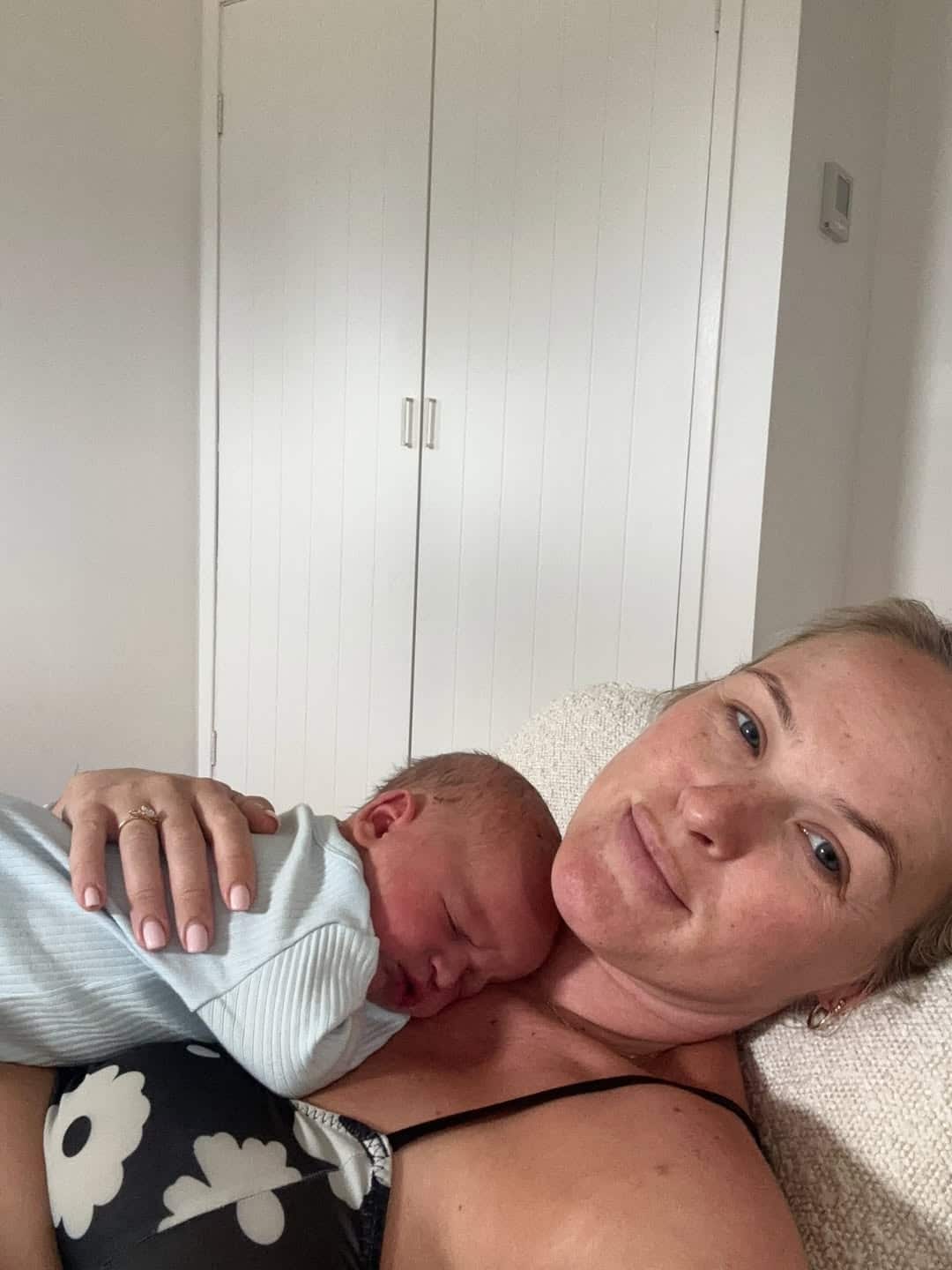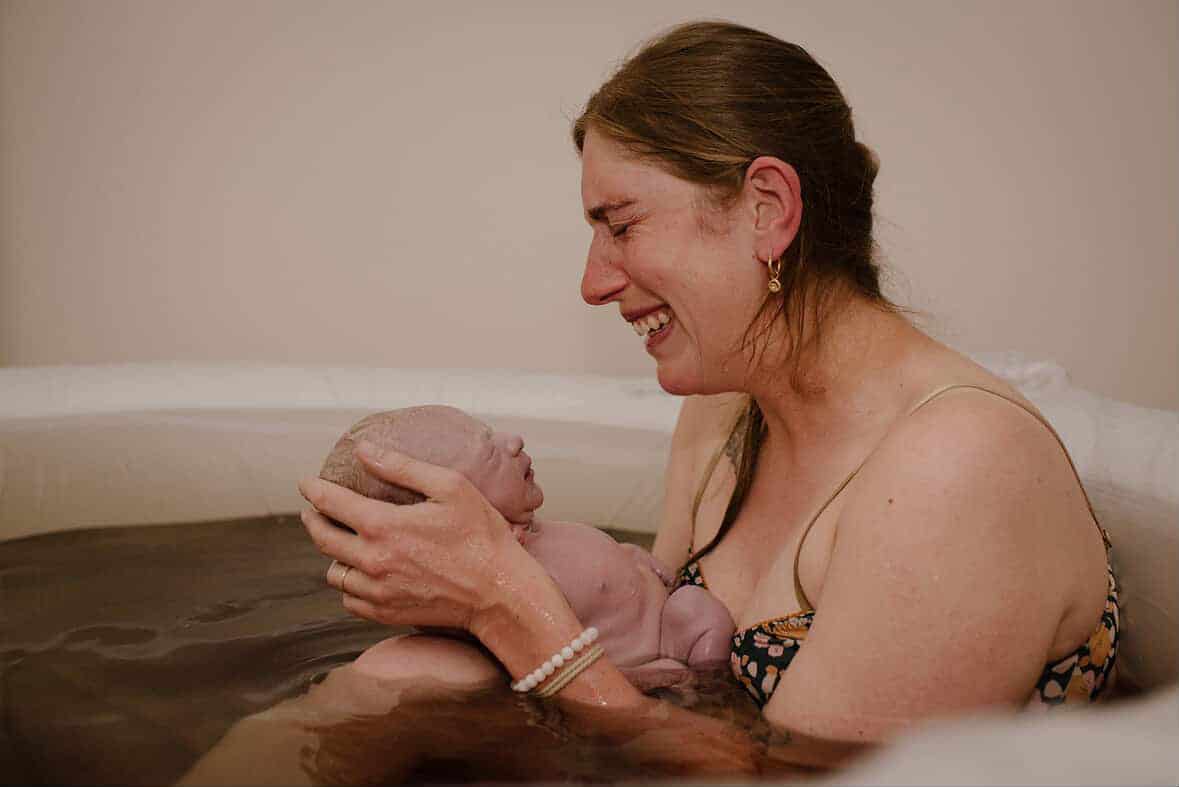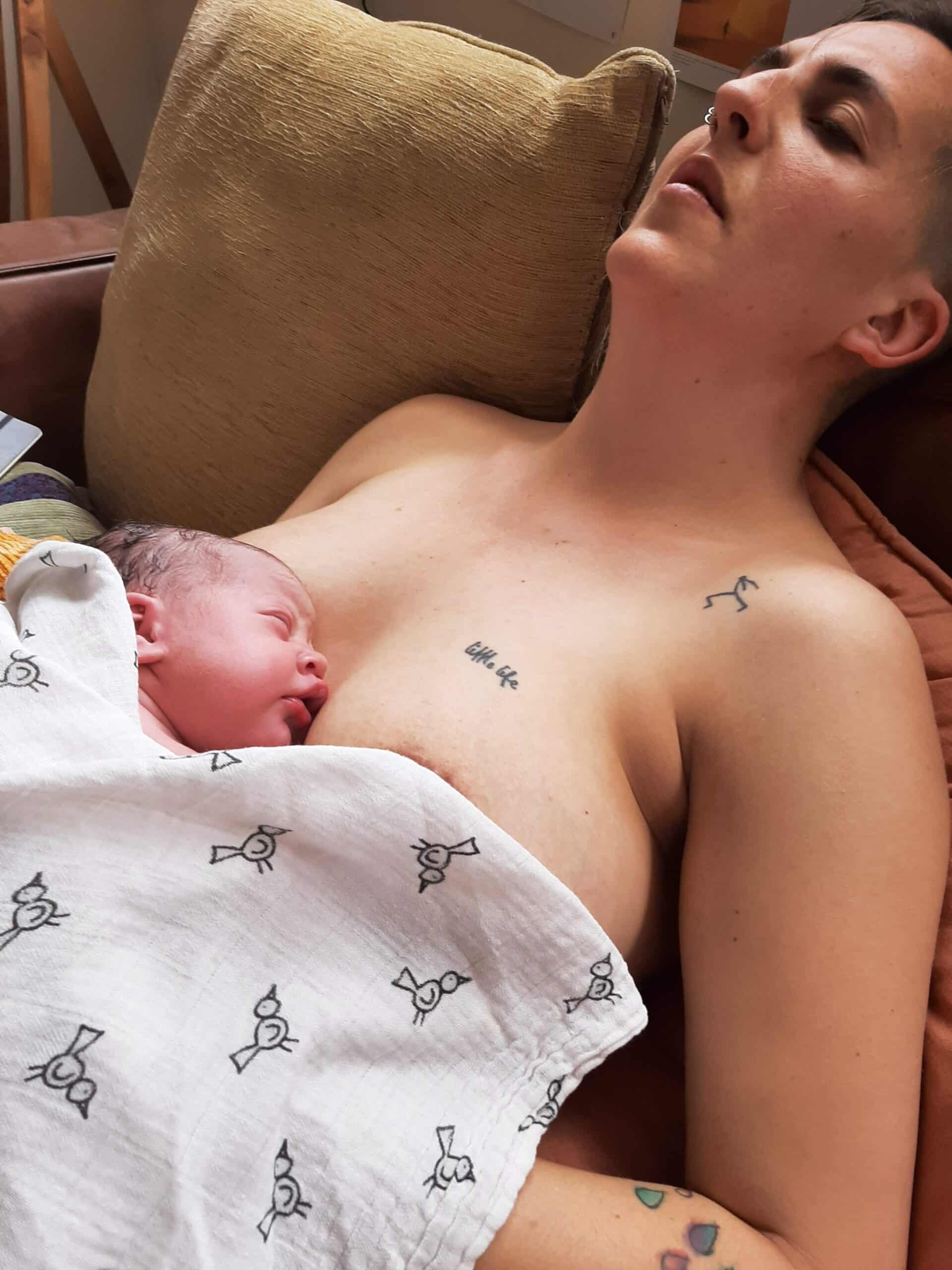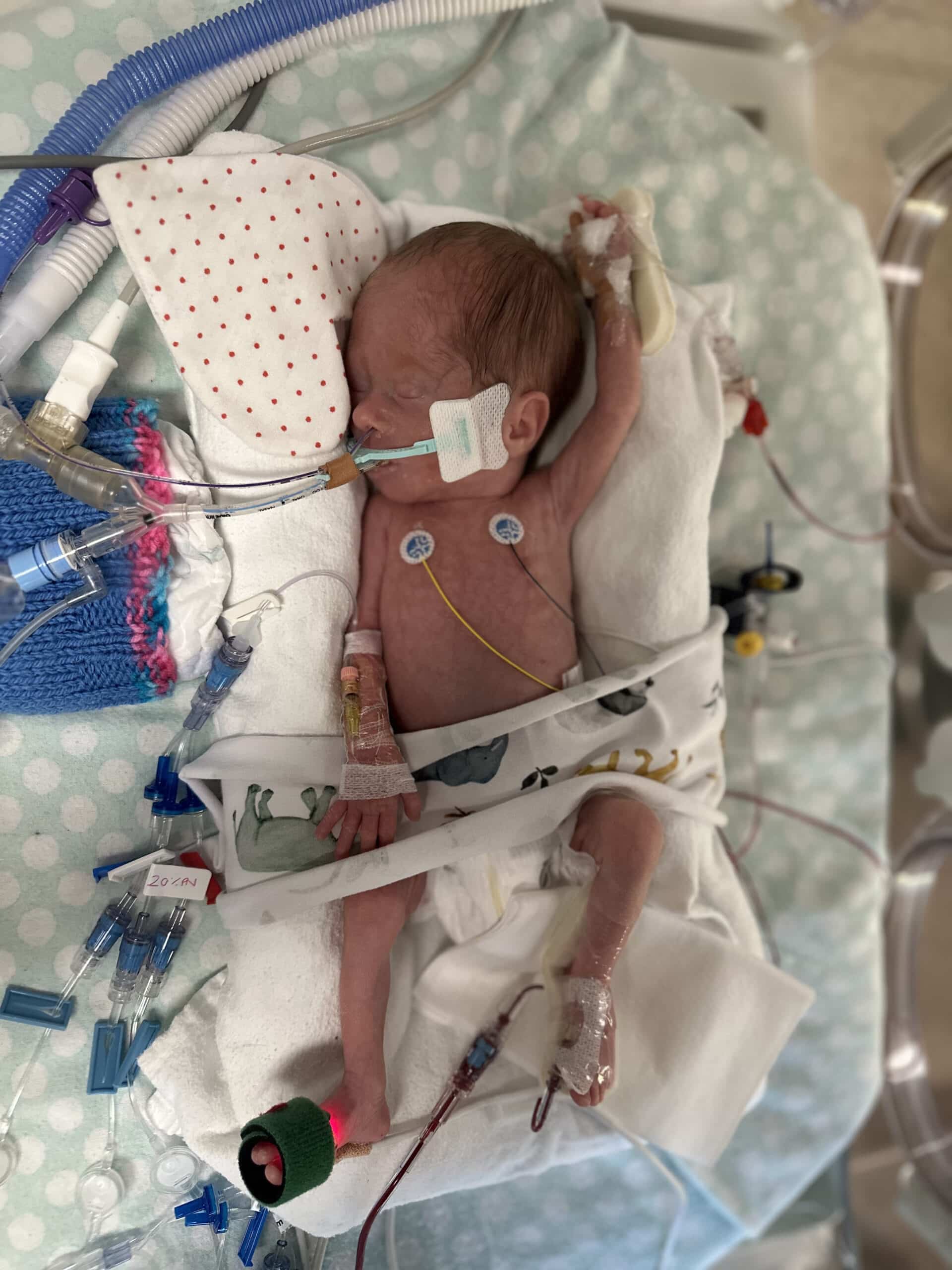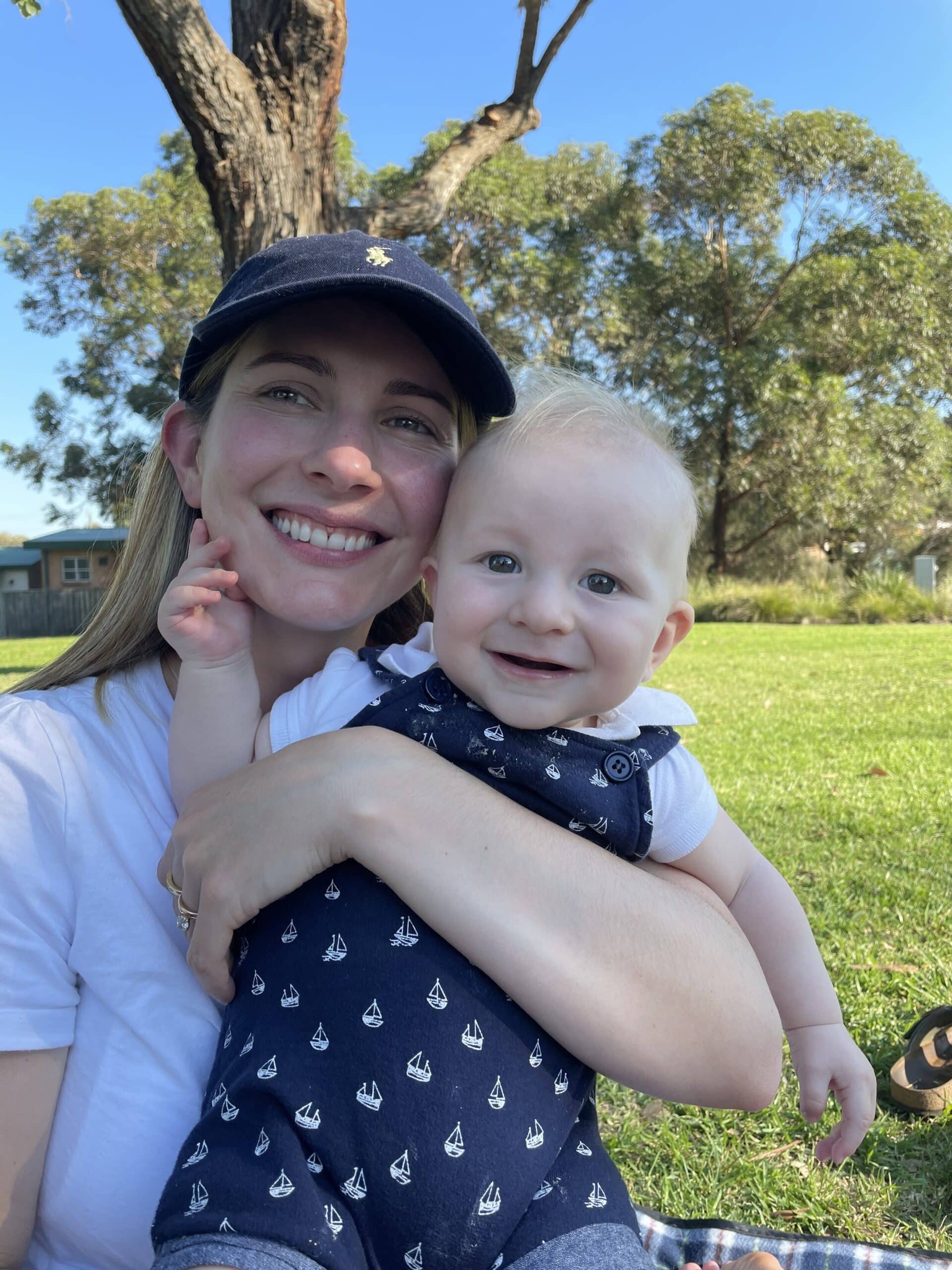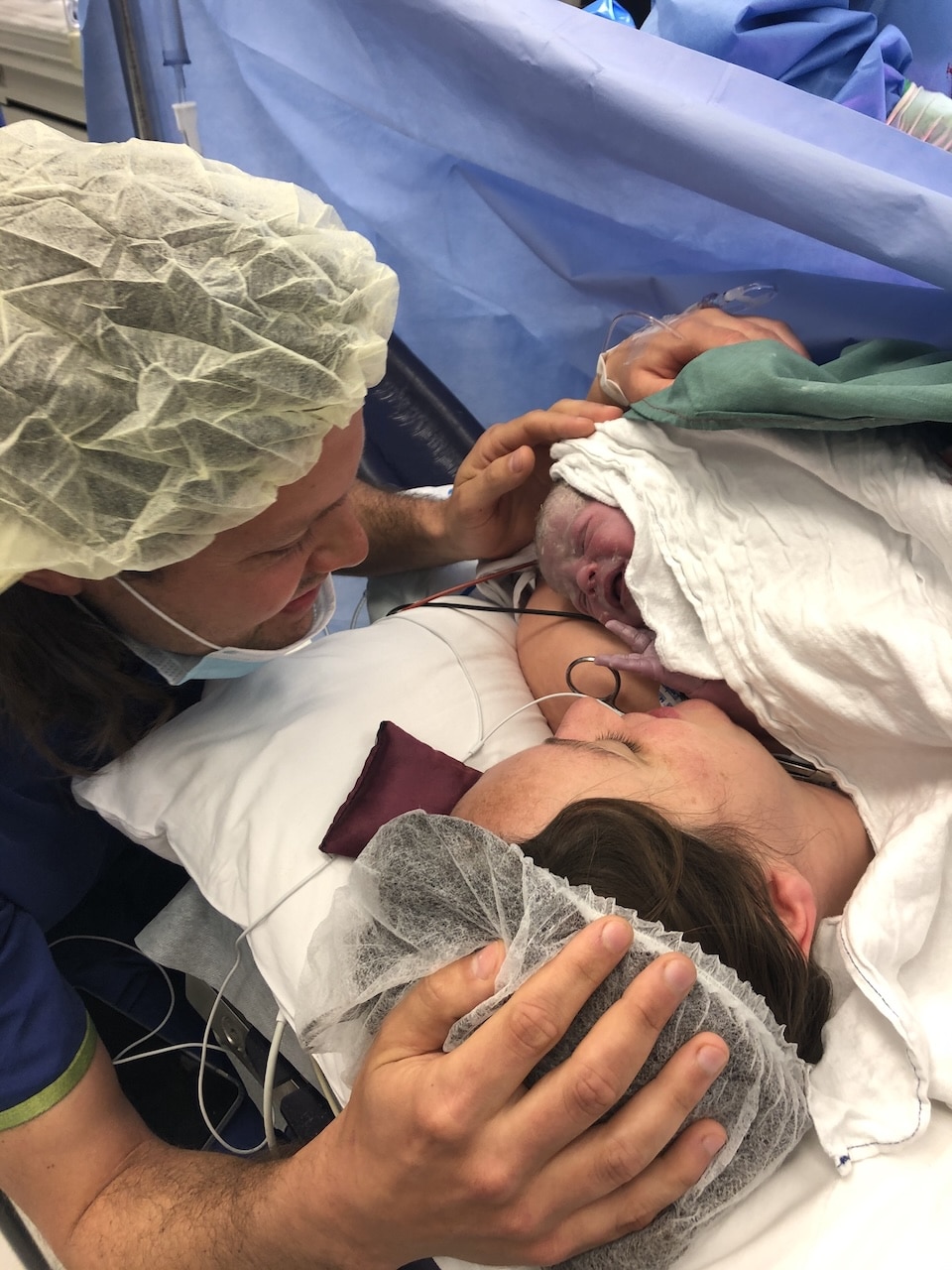Podcasts Olivia
EPISODE 294
Olivia
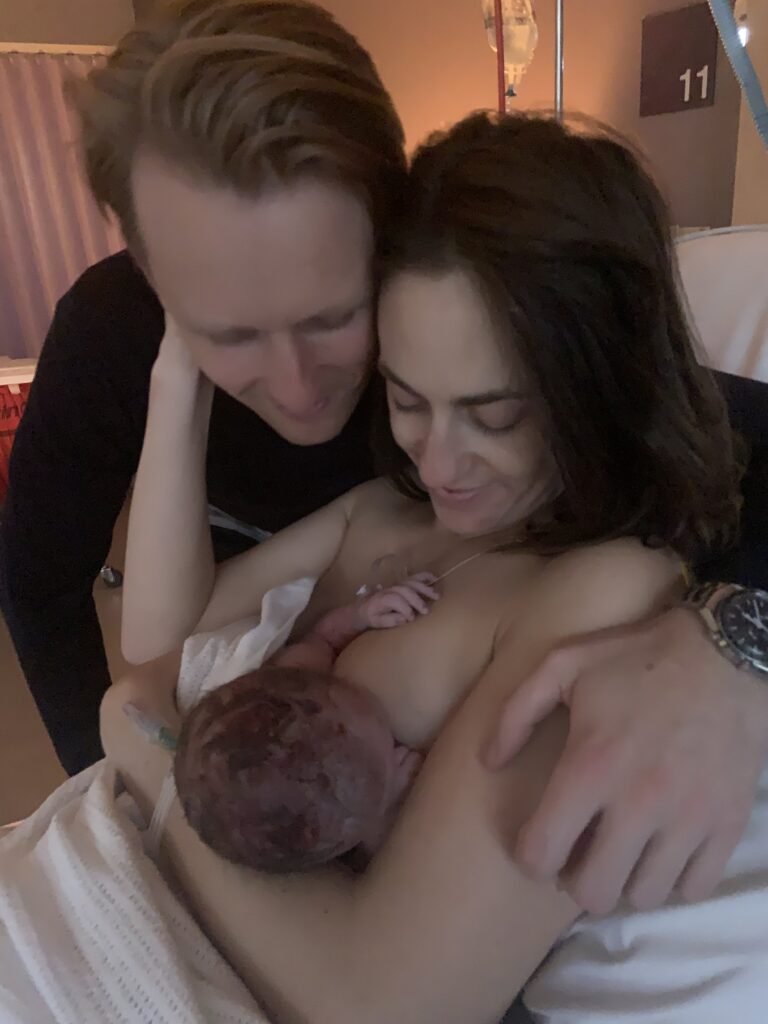
“From late highschool to my late-twenties I’d had eating disorders. I’d also experienced a range of different disorders which is quite a common experience. When my partner and I started talking about having a baby I was concerned about how my disordered eating, as well as polycystic ovaries and endometriosis would affect my fertility. I’d been on the pill from a young age because of acne and I was on the mirena when I decided that I wanted to give up all hormonal contraception so I could observe my natural cycle. I didn’t have a period for a year afterward which was anxiety inducing and I felt a lot of guilt about how much my disordered eating had affected that.”
She saw a fertility specialist who recommended clomid to kickstart ovulation but she had a bad response; the moodiness, headaches, bloating and nausea was all-consuming . She did four rounds of it and was closely monitored with ultrasounds and blood work but while she was ovulating, she didn’t have any luck conceiving.
“It was a really tough period and there’s a limited amount of cycles you can do it on. I felt gross and not myself and there’s a small window where you need to have sex but it wasn’t exactly romantic when you’re feeling so bad. The physical symptoms of bloating and nausea prompted poor mental health and that was really hard to manage because in the past, I’d turned to binge eating or purging to cope with those mental health experiences.”
After deceiding to take a break from fertility assistance and getting married, Olivia had two natural periods but they weren’t regular so she wasn’t timing sex for conception. A few months later she was exhausted, irritable, felt really off and was navigating significant mood swings. She noticed she was turning to food as a comfort so she booked in to see her psychologist. One night after vomiting and then collapsing into bed with exhaustion she thought that maybe, just maybe, she could be pregnant.
“It took me a long time, well into the first trimester, to believe that it was real. I saw my GP and decided to go to the MIST team (Midwives In Small Teams) at the Royal Women’s in Melbourne, where I was assigned a midwife in the hope that I would get them at every appointment.”
“Even though your care provider will ask you whether you have a history of depression and anxiety, they won’t directly ask if you have a history of eating disorders in pregnancy. I think having that question asked directly would have really helped me respond because I didn’t tell my midwife that I had recovered from a decade of eating disorders. I think it’s something that should be considered as part of standard maternity care because eating disorders, poor body image and disordered eating are so common in women and it’s something that is not talked about as much as it should be. Pregnancy can be a triggering time for those issues to reappear.
“I found people’s comments on my pregnancy really hard. I got a lot of comments about the fact that my belly was small and compact, to me I didn’t view that as a compliment because it reinforced that people were judging my body and placing value on what it looked like which I found challenging. I interpreted their comments that they were thinking I wasn’t eating enough or putting my baby at risk, which I found really hard because I’d done so much work and was really healthy for the first time in my life.”
Olivia admits that she presumed her general fitness and strength would serve her well in birth, hence she didn’t do any birth preparation. She was standing in a nightie in the hospital room having just started contracting when she slightly regretted her decision.
“I was 40 weeks and 1 day and my baby had a static fundal height so I was recommended to have an induction.They offered me the balloon catheter or the induction with the gel, I didn’t really know the difference so I went with the gel. It was slow to start and then it felt like things went really quickly. I went from lying down to being in a world of pain and absolutely screaming, I was at the point where I was incredibly scared. I was given all of the drugs – morphine and gas and an epidural – and from that moment my experience completely changed. It was the most beautiful day and I felt calm and relaxed and I felt really supported. It was the right decision for me to take that route.
“I had a bit of sensation with the epidural and I pushed for an hour but my baby’s heart rate was dropping so the obstetrician came in and helped me birth my baby with forceps. Everyone in my family wanted to meet the baby and they were so excited and I didn’t want to deny them that but we didn’t have the time or the space to settle into life as parents and that’s really clear in retrospect.”
Olivia’s mother couldn’t breastfeed so she was concerned she would have a similar experience but thankfully her breastfeeding journey was really straightforward although the associated hunger did trigger disordered eating thoughts.
“I’ve never had big boobs and all of a sudden I did and they were so painful. One thing that I definitely wasn’t aware of, and nobody told me, was how thirsty and hungry I would be while breastfeeding. I definitely wasn’t cutting foods out, I was definitely eating a lot more, but I was still hungry. When I ate enough to satisfy what felt like an insatiable appetite, I did have feelings of guilt around that. I think my history of disordered eating was a big part of that. After years of restricting and binging, I’d lost the ability to eat intuitively.
“I think because I had become so comfortable in pregnancy, being so grateful for the wonderful work my body was doing to grow a baby, that was quite protective of me. I’d been eating well and moving my body so I’d been doing things that helped. After I gave birth I felt good – apart from the stitches and my milk coming in. But I did start experiencing anxiety and I was determined not to fall back into disordered eating but I started having a few panic attacks so I sought help pretty quickly. I spoke to my doctors and did some research on anxiety medication and I felt comfortable doing that even though I was breastfeeding. The results were immediate, life was so much easier, it just took away a lot of what was going on in my head.
“I have definitely had thoughts about whether anxiety was the root cause of my eating disorders. It’s so important to get help and I didn’t get help for so long. The right support is so important to recovery. Eating Disorders Victoria or The Butterfly Foundation that works across Australia are a great place to start. There was so much shame and guilt about my eating disorders and it took a long time to open up about them and I think that prolonged my
suffering, definitely. I’m now using my lived experience to help others.”
Olivia fell pregnant naturally for the second time and she got a spot in the Royal Women’s Cosmos program. She had one dedicated midwife throughout pregnancy and birth and did a range of telehealth and in-person appointments which was an incredibly supportive experience considered she birthed at the height of covid lockdowns.
“I got a doula although her support was fairly limited because of covid but it was still really beneficial to have us in our corner. I was interested in birthing with a bit less pain relief and I felt incredibly excited about labour and meeting our new baby, especially knowing that we were only going to have two babies and it was the last time I would be birthing.
“I was induced again because I felt like my baby wasn’t moving as much which is a red flag. There were a few things that accumulated to be a concern, including lower amniotic fluid levels, and my midwife encouraged me to have an induction. I had my waters broken at 9am and I was able to naturally progress into labour and my midwife really advocated for me to have the birth I’d intended to have. I ended up having an epidural at 9cm because I got to the point where I was incredibly scared and it relaxed me enough for my baby to be able to birth easily without forceps. I went home that night, we were in hospital for less than 12 hours. I spent five days in bed, then five days close to the bed and my recovery was so much better.
“I’m now working with Eating Disorders Victoria and the Body Confident Mums to use my lived experience to help others. We know that Instagram and tiktok are huge contributors to disordered eating. Getting off social media was really helpful for me because it removed that habit of comparing myself to other women. Every time I dip back into it I instantly compare myself to others. With a new baby you’ve got a lot of timing sitting, and a lot of people are on their phones, and if you’re not feeling great about yourself because your body has changed so drastically, it’s a perfect storm when all you’re seeing is perfect filtered bodies.”
If you’re looking for support, you can also reach out to the Butterfly Foundation
Topics Discussed
Clomid, Eating disorder, Endometriosis, MGP, PCOS, Postnatal anxiety and depression
Episode Sponsor
Today’s episode of the show is brought to you by my online childbirth education course, The Birth Class.
What makes The Birth Class so unique?
Well, instead of learning from one person with one perspective, we’ve gathered nine perinatal health specialists to take you through everything you need to know about labor and birth.
Realistic information is key to thorough preparation.
Categories
Related Products
-
The Birth Class
108 reviews$249.00The empowering online childbirth education program that will help you confidently prepare for birth.
Join the conversation
Sign up to get the latest updates, freebies, podcast releases straight into your inbox
@AustralianBirthStories
Follow along with us
@AustralianBirthStories
Follow along with us
@AustralianBirthStories
Follow along with us
@AustralianBirthStories
Follow along with us
@AustralianBirthStories
Follow along with us
@AustralianBirthStories
Follow along with us
@AustralianBirthStories
Follow along with us
@AustralianBirthStories
Follow along with us
@AustralianBirthStories
Follow along with us
@AustralianBirthStories
Follow along with us
@AustralianBirthStories
Follow along with us
@AustralianBirthStories
Follow along with us
